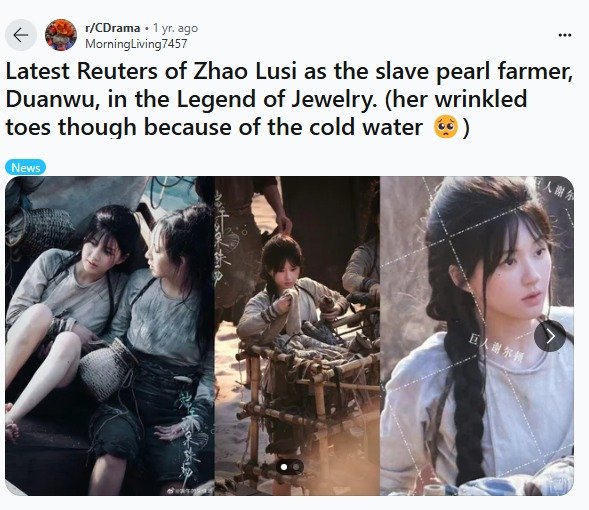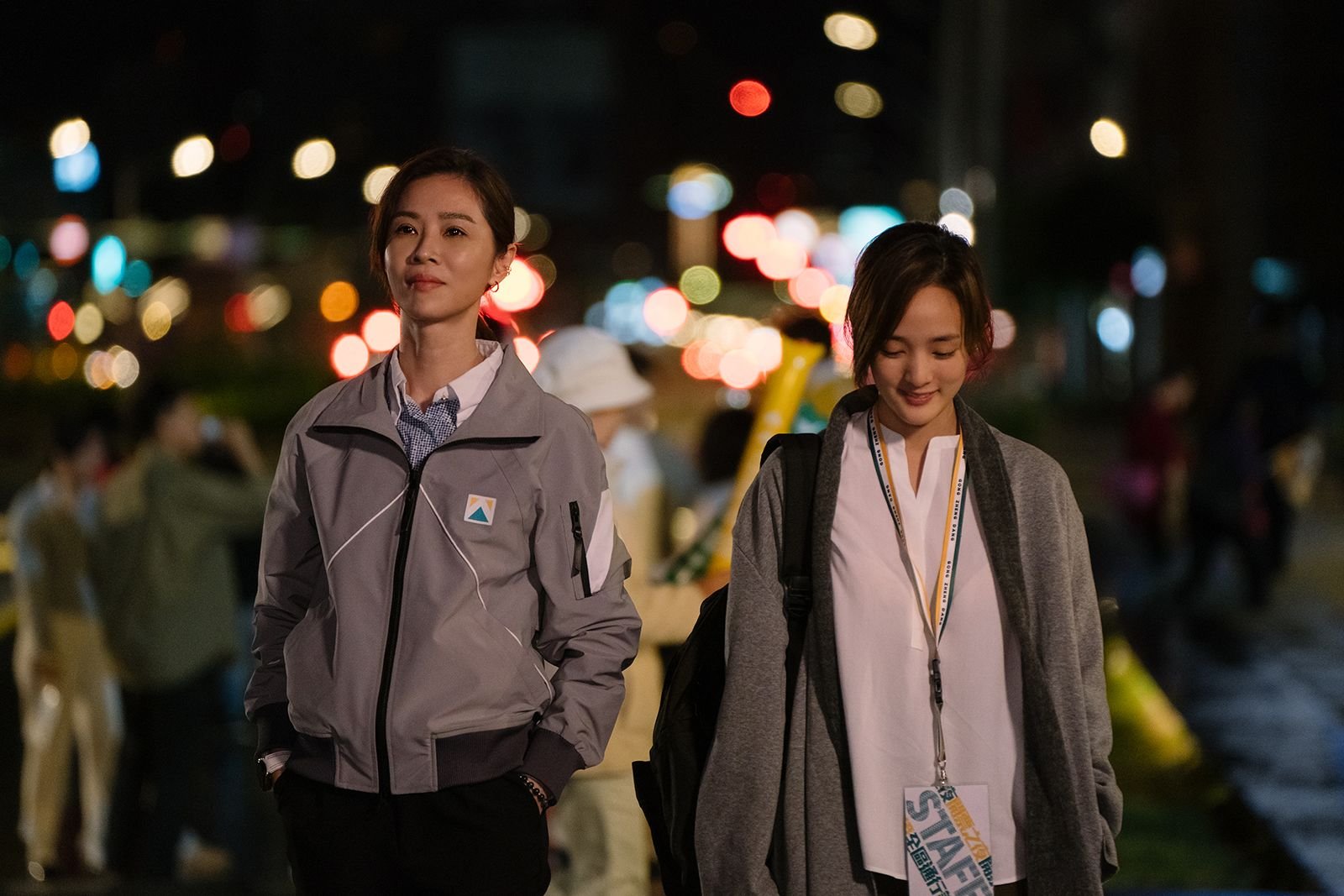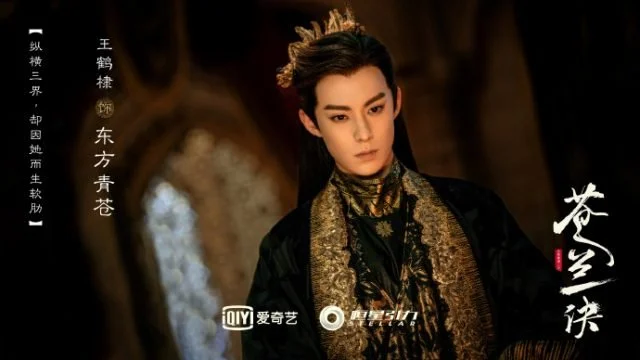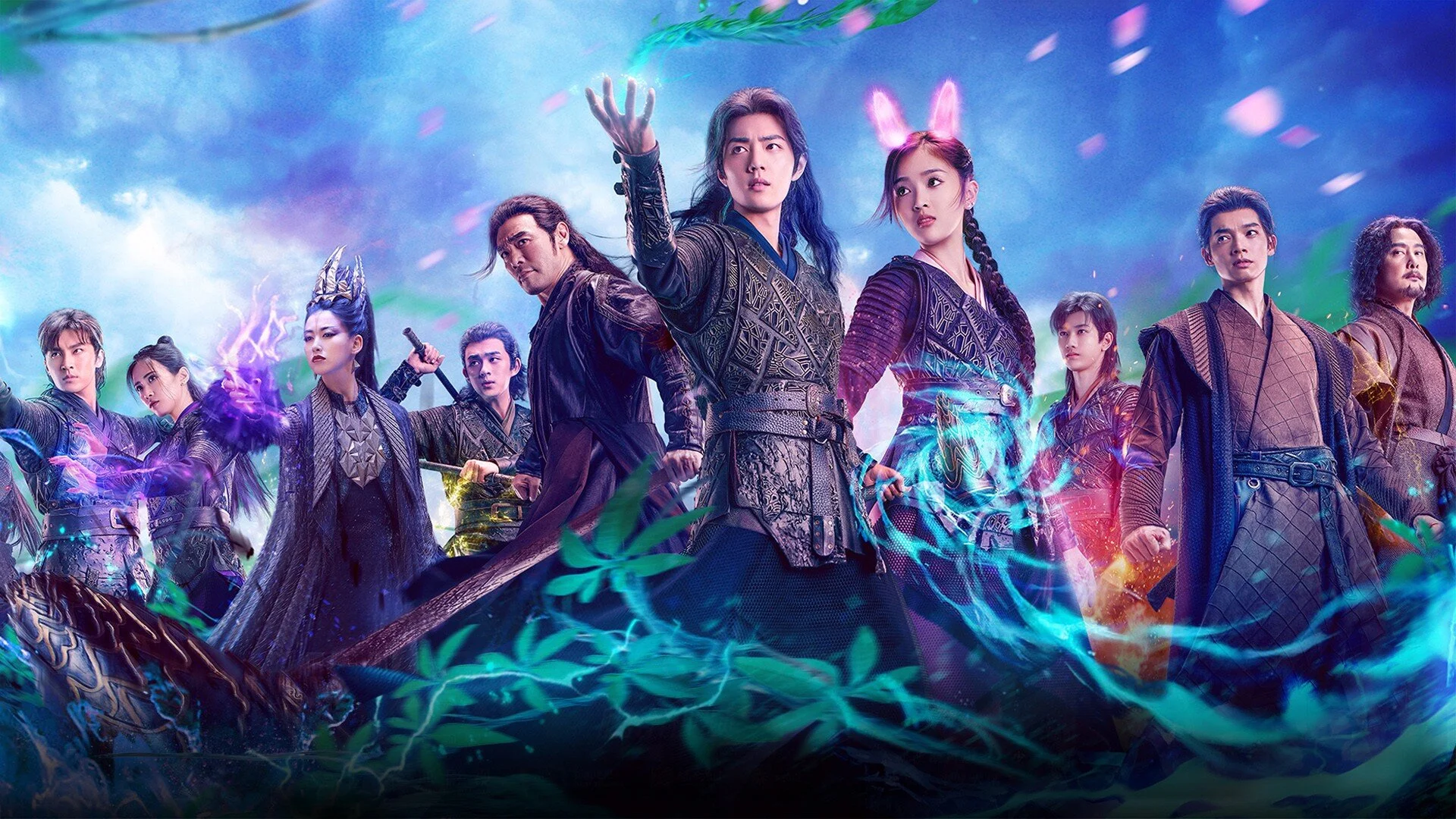Reel to Real: How Netflix’s Wave Makers sparked a #MeToo movement (and created a vice-presidential candidate)
Credit: Netflix
In May 2023, a Taiwanese political drama on Netflix set off a #MeToo wave across the island that embroiled politicians, diplomats, academics, activists, celebrities, and many others. Previous sexual misconduct cases had failed to gain #MeToo traction, but more than five years after the movement swept through the U.S. and beyond, Taiwan was finally having its own moment of reckoning. But more than a year later, has anything changed?
Not long after Wave Makers (人選之人-造浪者 Rénxuǎn zhī rén-zào làng zhě) hit the streaming service at the end of April 2023, a Facebook post by Chen Chien-jou (陳汘瑈 Chén Qiānróu) referencing the series sparked a long-overdue #MeToo conversation.
In her post, Chen, a former Democratic Progressive Party (DPP) staffer, accused film director Hsueh Chao-hui (薛朝輝 Xuē Cháohuī) of groping and unwanted advances during a car ride following a video shoot for the DPP. Her initial complaint was essentially ignored and met with dismissal — “why hadn’t she screamed or tried to escape?”
She referenced Wave Makers, a drama about campaign staffers in the run-up to a Taiwan presidential election. Early in the show, a senior party member tells a junior staffer who was sexually harassed at work to not let it go, despite pressure from others to do so for the “greater good”; after all, the harasser was a valuable part of the campaign team.
Open discussions about unwanted sexual advances, harassment and violence can still be difficult in Taiwan; Wave Makers became a common rallying point for those who faced similar experiences. One after another, revelations were made and the fallout was swift. Within days, the Taiwanese political landscape was dotted with high level resignations. At least 10 people linked to the DPP were implicated either through new allegations or for their role in how complaints were mishandled. Then-President Tsai Ing-wen made a public apology. The rival Kuomintang was not spared either. The movement quickly spread beyond politics, with a spectrum of prominent figures and ordinary people from industries and groups across Taiwanese society facing similar allegations of sexual misconduct.
Prior to Wave Makers, Shards of Her (2022) (她和她的她 Tā hé tā de tā), another powerful Taiwanese drama starring Tiffany Hsu (許瑋甯 Xǔ Wěiníng) also highlighted and explored the culture of silence around sexual crimes, power-based sexual assault, and the psychological trauma and scars that victims must grapple with years later. While the themes also resonated with viewers, it did not open the #MeToo floodgates in the same way as the aptly named Wave Makers.
By June 2023, the NYTimes reported that more than 100 accusers had spoken out. Weeks later, in July, Bloomberg counted over 200. A teacher at an elite Catholic elementary school, a former chief justice, exiled Chinese dissident Wang Dan (王丹), entertainment industry celebrities like Aaron Yan (炎亞綸 Yán Yàlún) and TV personality Mickey Huang (黃子佼 Huáng Zǐjiǎo), and a Polish diplomat were among those facing multiple accusations ranging from unwanted groping to rape.
Exemplifying the deep-seated problem, Blackie Chen/Chen Chien-chou (陳建州 Chén Jiànzhōu), founder and former chief executive officer of Taiwan’s professional basketball league, P. League+, stepped down from his CEO position in June 2023 after several women accused him of sexual harassment. The acting CEO Zhōu Chóngwěi who stepped in was let go over sexual harassment allegations less than a week after taking the reins from Chen. And in a twist that outraged activists and victims, one of Chen’s accusers, singer Tina Chou (周宜霈 Zhōu Yípèi, stage name 大牙 Dà Yá) was sued by Chen and his wife for defamation (prosecutors did not pursue charges).
Alongside the Wave Makers spark, another incident around the same time was also brewing. Taiwanese politician and TV pundit Lee Zhenghao (李正皓 Lǐ Zhènghào), who was part of an alliance with the Democratic Progressive Party (DPP), ran for election as a non-party member in May 2023. His candidacy angered DPP supporters and staff members because of accusations dating back to 2016 when he was still part of the Kuomintang (KMT). At the time, a magazine revealed that Lee had secretly filmed a former girlfriend and threatened her with the sex video. The ex-girlfriend, who allegedly found similar videos with other women on Lee’s phone, declined to press charges, however. Lee, who denied making secret videos, eventually won a lawsuit over the events. But amid the pressure and controversy, Lee withdrew from the election.
Despite the wave of accusations throughout 2023 and some efforts toward legal reforms in Taiwan, activists want more and say there has been little political or public will for meaningful policy changes or societal changes. For many, the culture of silence or “staying quiet for the greater cause” is still highly prized.
Meanwhile, some of the accused picked up where they left off once the dust settled or were given a slap on the wrist. Lee Zhenghao resumed his role as a television political commentator. Blackie Chen returned to P. League+ as vice-president. Award-winning TV Host Mickey Huang apologized for his sexual misconduct, and the investigation was dropped earlier this year due to insufficient evidence and because he had reached a settlement with his accusers. Huang also avoided prosecution after police found sex child abuse videos in his possession last year. The leniency of a mere fine fueled anger and calls for tougher laws in Taiwan, with critics noting that similar charges in the U.S. could result in as many as 10 years in prison. Elsewhere, singer and actor Aaron Yan was handed seven- and four-month prison sentences that were suspended for three years for filming and sharing intimate videos of a minor. The seven-month sentence for recording the video could also be commuted to a fine, but prosecutors did not pursue rape charges due to a lack of evidence.
When I spoke with advocates like Darice Chang and Rita Jhang half a year later for a NuVoices podcast, they noted that more progressive circles and larger institutions have been more proactive with protections. But “on a societal level, there has fundamentally been no change” and little oversight in many industries, Chang said. In many instances, the mindset has been, “be careful, don’t do it so you get caught, because we’re in a different time,” rather than one that condemns the behaviour itself, they said.
ART IMITATING LIFE IMITATING ART?
Credit: Business Insider/Handout/Terry Gou
Beyond #MeToo, Wave Makers is about politics and the election. In an odd twist of reality meets fiction, Taiwanese actress, singer, and writer Tammy Lai (賴佩霞 Lài Pèixiá), who plays the DPP-like presidential candidate Lin Yuezheng in Wave Makers, was chosen in September 2023 to be the real-life running mate in billionaire Foxconn founder Terry Gou's presidential run. Lai, who also received a Golden Bell Award nomination for best supporting actress the same day her vice-presidential candidacy was announced, has a Master’s Degree in international relations, and a PhD in law from China’s Jinan University.
By chance, I was watching the final episode of the series when news about Lai broke. It was an oddly surreal moment to see fiction crossover into reality. Despite pouring significant resources into his political campaign, Terry Gou did not gain enough traction against his rivals. By November 2023, he withdrew from the presidential race, thus also ending the brief Reel to Real moment for Lai.
Meanwhile, the fictional drama captures the king and queen makers behind the scenes. Reminiscent of President Barack Obama’s whirlwind champaign and his road to the White House in 2008, the Wave Makers team are a group of mostly young idealists grappling with the pragmatism of politics: you can’t change the status quo if you don’t get elected, and you can’t get elected if you don’t make difficult and uncomfortable compromises.
In an era where unity feels scare, the depiction of enormous crowds united towards a common cause is powerful and moving. For viewers with a more cynical eye, Waver Makers may ultimately feel too saccharine and hopeful to be believed, be it on politics or #MeToo.
***
To hear more about Taiwan’s #MeToo movement and overcoming a culture of silence, listen to my conversation with Darice Chang and Rita Jhang via your browser, Apple, Spotify, or Google podcast apps.
Further reading: Taiwan Insight, “#MeToo Movement in Taiwan: Reconfiguring the Intimate Life” by Mei-Hua Chen































